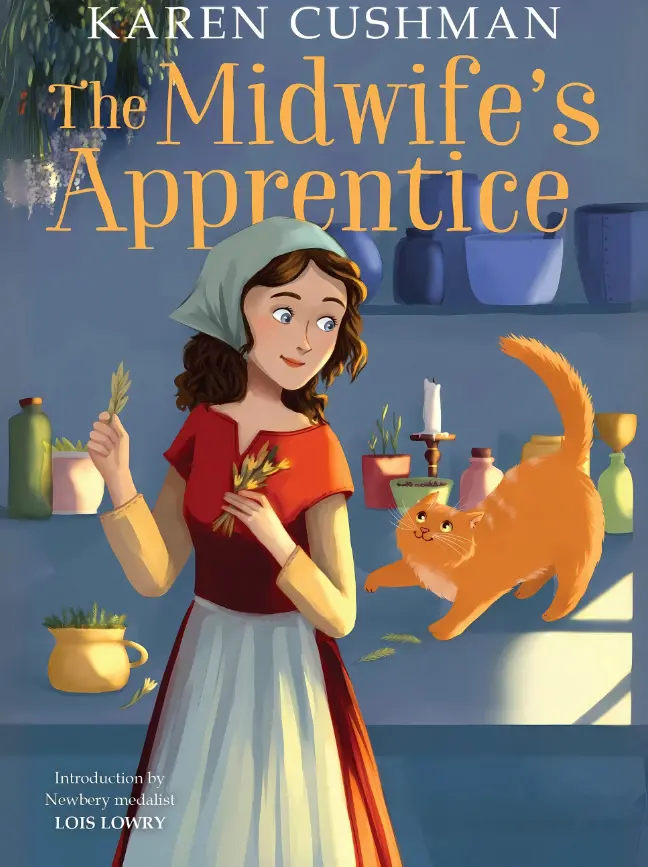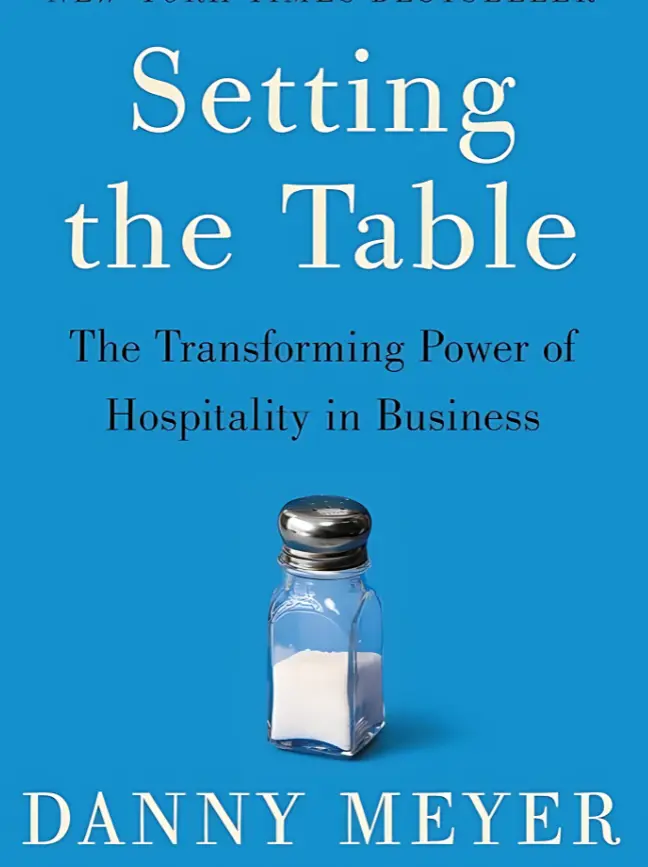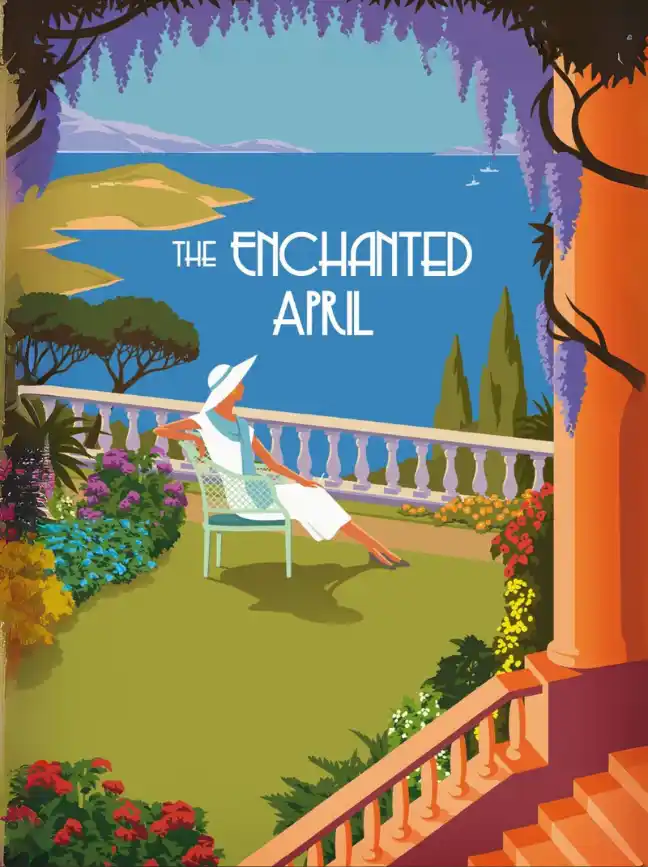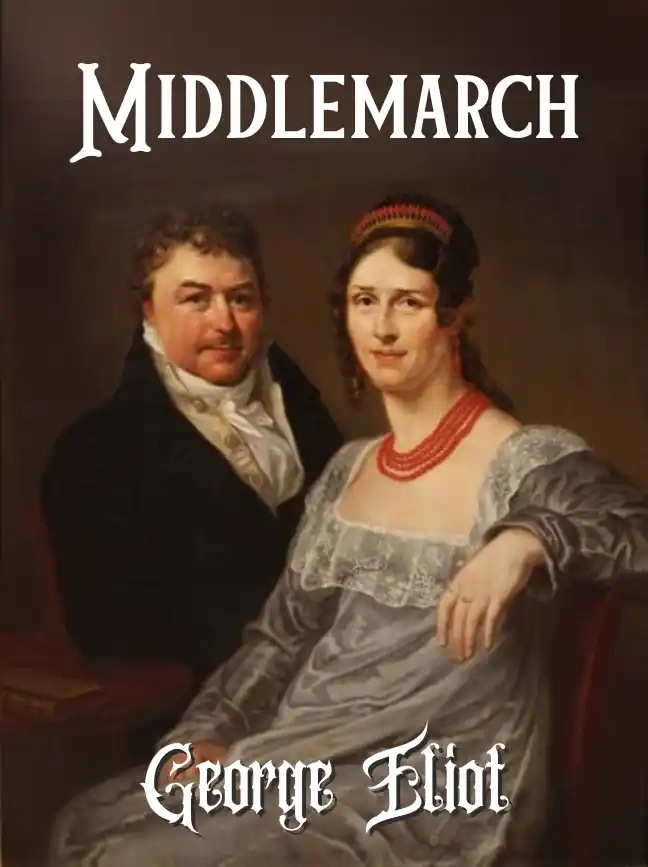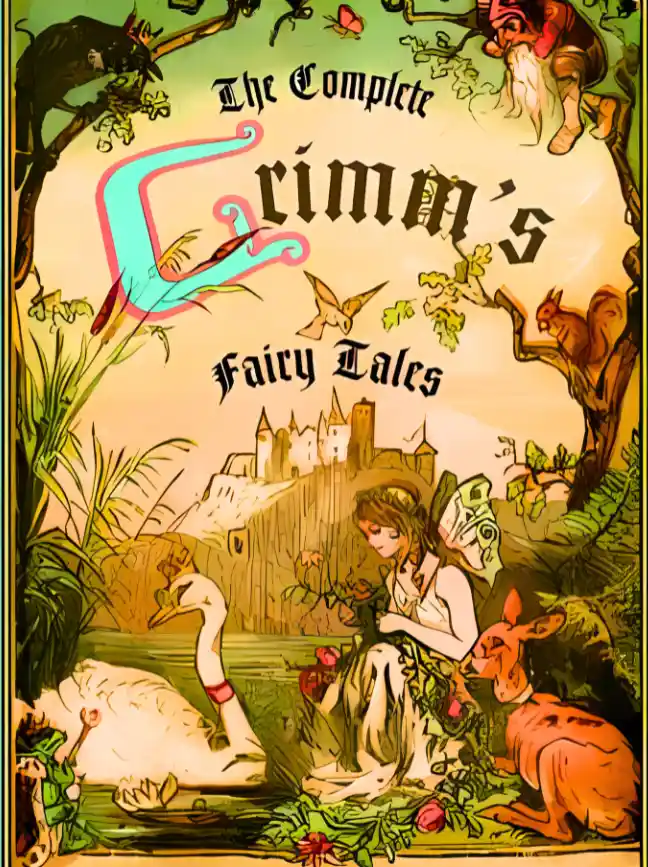W
hen Noemí was a little girl and Catalina read fairy tales to her, she used to mention “the forest,” that place where Hansel and Gretel tossed their breadcrumbs or Little Red Riding Hood met a wolf. Growing up in a large city, it did not occur to Noemí until much later that forests were real places, which could be found in an atlas. Her family vacationed in Veracruz, in her grandmother’s house by the sea, with no tall trees in sight. Even after she grew up, the forest remained in her mind a picture glimpsed in a storybook by a child, with charcoal outlines and bright splashes of color in the middle.
It took her a while, therefore, to realize that she was headed into a forest, for El Triunfo was perched on the side of a steep mountain carpeted with colorful wildflowers and covered thickly with pines and oaks. Noemí sighted sheep milling around and goats braving sheer rock walls. Silver had given the region its riches, but tallow from these animals had helped illuminate the mines, and they were plentiful. It was all very pretty.
The higher the train moved and the closer it got to El Triunfo, though, the more the bucolic landscape changed and Noemí reassessed her idea of it. Deep ravines cut the land, and rugged ridges loomed outside the window. What had been charming rivulets turned into strong, gushing rivers, which spelled doom should anyone be dragged by their currents. At the bottom of the mountains farmers tended groves and fields of alfalfa, but there were no such crops here, just the goats climbing up and down rocks. The land kept its riches in the dark, sprouting no trees with fruit.
The air grew thin as the train struggled up the mountain until it stuttered and stopped.
Noemí grabbed her suitcases. She’d brought two of them and had been tempted to also pack her favorite trunk, though in the end she had judged it too cumbersome. Despite this concession, the suitcases were large and heavy.
The train station was not busy and was barely a station at all, just a lonesome square-shaped building with a half-asleep woman behind the ticket counter. Three little boys were chasing one another around the station, playing tag, and she offered them some coins if they helped her lug her suitcases outside. They did, gladly. They looked underfed, and she wondered how the town’s inhabitants got by now the mine was closed and only the goats provided the opportunity for a bit of commerce.
Noemí was prepared for the chill of the mountain. The unexpected element was therefore the thin fog that greeted her that afternoon. She looked at it curiously as she adjusted her teal calotte hat with the long yellow feather and peered onto the street looking at her ride, for there could hardly be any mistaking it. It was the single automobile parked in front of the station, a preposterously large vehicle that made her think of swanky silent film stars of two or three decades earlier—the kind of automobile her father might have driven in his youth to flaunt his wealth.
But the vehicle in front of her was dated, dirty, and it needed a paint job. Therefore it was not truly the kind of automobile a movie star would drive these days, but seemed to be a relic that had been haphazardly dusted off and dragged onto the street.
She thought the driver might match the car and expected to find an elderly man behind the wheel, but a young fellow of about her age in a corduroy jacket stepped out. He was fair-haired and pale—she didn’t realize anyone could be that pale; goodness, did he ever wander into the sun?—his eyes uncertain, his mouth straining to form a smile or a greeting.
Noemí paid the boys who had helped bring her luggage out, then marched forward and extended her hand.
“I am Noemí Taboada. Has Mr. Doyle sent you?” she asked.
“Yes, Uncle Howard said to pick you up,” he replied, shaking her hand weakly. “I’m Francis. I hope the ride was pleasant? Those are all your things, Miss Taboada? Can I help you with them?” he asked in quick succession, as if he preferred to end all sentences with question marks rather than commit to definite statements.
“You can call me Noemí. Miss Taboada sounds so fussy. That’s the sum of my luggage, and yes, I’d love some assistance.”
He grabbed her two suitcases and placed them in the trunk, then went around the car and opened the door for her. The town, as she saw it from her window, was peppered with winding streets, colorful houses with flower pots at their windows, sturdy wooden doors, long stairways, a church, and all the usual details that any guidebook would call “quaint.”
Despite this, it was clear El Triunfo was not in any guidebooks. It had the musty air of a place that had withered away. The houses were colorful, yes, but the color was peeling from most of the walls, some of the doors had been defaced, half of the flowers in the pots were wilting, and the town showed few signs of activity.
It was not that unusual. Many formerly thriving mining sites that had extracted silver and gold during the Colonia interrupted their operations once the War of Independence broke out. Later on, the English and the French were welcomed during the tranquil Porfiriato, their pockets growing fat with mineral riches. But the Revolution had ended this second boom. There were many hamlets like El Triunfo where one could peek at fine chapels built when money and people were plentiful; places where the earth would never again spill wealth from its womb.
Yet the Doyles lingered in this land, when many others had long gone. Perhaps, she thought, they’d learned to love it, though she was not much impressed by it, for it was a steep and abrupt landscape. It didn’t look at all like the mountains from her childhood storybooks, where the trees appeared lovely and flowers grew by the road; it didn’t resemble the enchanting place Catalina had said she would live in. Like the old car that had picked Noemí up, the town clung to the dregs of splendor.
Francis drove up a narrow road that climbed deeper into the mountains, the air growing rawer, the mist intensifying. She rubbed her hands together.
“Is it very far?” she asked.
Again he looked uncertain. “Not that far,” Francis said slowly, as if they were discussing a matter that had to be considered with much care. “The road is bad or I’d go faster. It used to be, a long time ago, when the mine was open, that the roads around here were all in good shape, even near High Place.”
“High Place?”
“That’s what we call it, our home. And behind it, the English cemetery.”
“Is it really very English?” she said, smiling.
“Yes,” he said, gripping the wheel with both hands with a strength she would not have imagined from his limp handshake.
“Oh?” she said, waiting for more.
“You’ll see it. It’s all very English. Um, that’s what Uncle Howard wanted, a little piece of England. He even brought European earth here.”
“Do you think he had an extreme case of nostalgia?”
“Indeed. I might as well tell you, we don’t speak Spanish at High Place. My great uncle doesn’t know a word of it, Virgil fares poorly, and my mother wouldn’t ever attempt to stitch a sentence together. Is…is your English any good?”
“Lessons every day since I was six,” she said, switching from Spanish to English. “I’m sure I’ll have no trouble.”
The trees grew closer together, and it was dark under their branches. She was not one for nature, not the real thing. The last time she had been anywhere near a forest had been on that excursion to El Desierto de los Leones when they went riding and then her brother and her friends decided to do some practice shooting with tin cans. That had been two, maybe even three years before. This place didn’t compare to that. It was wilder here.
She found herself warily assessing the height of the trees and the depths of the ravines. Both were considerable. The mist thickened, making her wince, fearing they’d wind up halfway down the mountain if they took a wrong turn. How many eager miners hunting for silver had fallen off a cliff? The mountains offered mineral riches and a quick death. But Francis seemed secure in his driving even if his words faltered. She didn’t generally like shy men—they got on her nerves—but who cared. It was not as if she’d come to see him or any other members of his family.
“Who are you, anyway?” she asked, to distract herself from the thought of ravines and cars crashing against unseen trees.
“Francis.”
“Well, yes, but are you Virgil’s little cousin? Long-lost uncle?
Another black sheep I must be informed about?”
She spoke in that droll way she liked, the one she used at cocktail parties, and that always seemed to get her very far with people, and he replied as she expected, smiling a little.
“First cousin, once removed. He’s a bit older than me.”
“I’ve never understood that. Once, twice, thrice removed. Who keeps track of such a thing? I always figure if they come to my birthday party we are related and that’s it, no need to pull out the genealogy chart.”
“It certainly simplifies things,” he said. The smile was real now.
“Are you a good cousin? I hated my boy cousins when I was little. They’d always push my head against the cake at my party even though I didn’t want to do the whole mordida thing.”
“Mordida?”
“Yes. You’re supposed to take a bite of the cake before it is cut, but someone always shoves your head into it. I guess you didn’t have to endure that at High Place.”
“There aren’t many parties at High Place.”
“The name must be a literal description,” she mused, because they kept going up. Did the road have no end? The wheels of the car crunched over a fallen tree branch, then another.
“Yes.”
“I’ve never been in a house with a name. Who does that these days?”
“We’re old-fashioned,” he mumbled.
Noemí eyed the young man skeptically. Her mother would have said he needed iron in his diet and a good cut of meat. By the looks of those thin fingers he sustained himself on dewdrops and honey, and his tone tended toward whispers. Virgil had seemed to her much more physical than this lad, much more present. Older, too, as Francis had indicated. Virgil was thirty-something; she forgot his exact age.
They hit a rock or some bump in the road. Noemí let out an irritated “ouch.”
“Sorry about that,” Francis said.
“I don’t think it’s your fault. Does it always look like this?” she asked. “It’s like driving in a bowl of milk.”
“This is nothing,” he said with a chuckle. Well. At least he was relaxing.
Then, all of a sudden, they were there, emerging into a clearing, and the house seemed to leap out of the mist to greet them with eager arms. It was so odd! It looked absolutely Victorian in construction, with its broken shingles, elaborate ornamentation, and dirty bay windows. She’d never seen anything like it in real life; it was terribly different from her family’s modern house, the apartments of her friends, or the colonial houses with façades of red tezontle.
The house loomed over them like a great, quiet gargoyle. It might have been foreboding, evoking images of ghosts and haunted places, if it had not seemed so tired, slats missing from a couple of shutters, the ebony porch groaning as they made their way up the steps to the door, which came complete with a silver knocker shaped like a fist dangling from a circle.
It’s the abandoned shell of a snail, she told herself, and the thought of snails brought her back to her childhood, playing in the
courtyard of their house, moving aside the potted plants and seeing the roly-polies scuttle about as they tried to hide again. Or feeding sugar cubes to the ants, despite her mother’s admonishments. Also the kind tabby, which slept under the bougainvillea and let itself be petted endlessly by the children. She did not imagine they had a cat in this house, nor canaries chirping merrily in their cages that she might feed in the mornings.
Francis took out a key and opened the heavy door. Noemí walked into the entrance hall, which gave them an immediate view of a grand staircase of mahogany and oak with a round, stained-glass window on the second landing. The window threw shades of reds and blues and yellows upon a faded green carpet, and two carvings of nymphs—one at the bottom of the stairs by the newel post, another by the window—stood as silent guardians of the house. By the entrance there had been a painting or a mirror on a wall, and its oval outline was visible against the wallpaper, like a lonesome fingerprint at the scene of a crime. Above their heads there hung a nine-arm chandelier, its crystal cloudy with age.
A woman was coming down the stairs, her left hand sliding down the banister. She was not an old woman although she had streaks of silver in her hair, her body too straight and nimble to belong to a senior citizen. But her severe gray dress and the hardness in her eyes added years that were not embedded in the flesh of her frame.
“Mother, this is Noemí Taboada,” Francis said as he began the climb up with Noemí’s suitcases.
Noemí followed him, smiling, and offered her hand to the woman, who looked at it as if she was holding up a piece of week-old fish. Instead of shaking her hand, the woman turned around and began walking up the stairs.
“A pleasure to meet you,” the woman said with her back to Noemí. “I am Florence, Mr. Doyle’s niece.”
Noemí felt like scoffing but bit her tongue and simply slid next to Florence, walking at her pace.
“Thank you.”
“I run High Place, and therefore, if you need anything, you should come to me. We do things a certain way around here, and we expect you to follow the rules.”
“What are the rules?” she asked.
They passed next to the stained-glass window, which Noemí noted featured a bright, stylized flower. Cobalt oxide had been used to create the blue of the petals. She knew such things. The paint business, as her father put it, had provided her with an endless array of chemical facts, which she mostly ignored and which, nevertheless, stuck in her head like an annoying song.
“The most important rule is that we are a quiet and private lot,” Florence was saying. “My uncle, Mr. Howard Doyle, is very old and spends most of his time in his room. You are not to bother him. Second of all, I am in charge of nursing your cousin. She is to get plenty of rest, so you must not bother her unnecessarily either. Do not wander away from the house on your own; it is easy to get lost and the region is puckered with ravines.”
“Anything else?”
“We do not go to town often. If you have business there, you must ask me, and I’ll have Charles drive you.”
“Who is he?”
“One of our staff members. It’s a rather small staff these days: three people. They’ve served the family for many years.”
They went down a carpeted hallway, oval and oblong oil portraits on the walls serving as decoration. The faces of long-dead Doyles stared at Noemí from across time, women in bonnets and heavy dresses, men in top hats wearing gloves and dour expressions. The kind of people who might lay claim to a family crest. Pale, fair- haired, like Francis and his mother. One face blended into another. She would not have been able to tell them apart even if she’d looked closely.
“This will be your room,” said Florence once they reached a door with a decorative crystal knob. “I should warn you there is no smoking in this house, in case you partake in that particular vice,”
she added, eyeing Noemí’s chic handbag, as if she could see through it and into her pack of cigarettes.
Vice, Noemí thought and was reminded of the nuns who had overseen her education. She’d learned rebellion while muttering the rosary.
Noemí stepped inside the bedroom and regarded the ancient four-poster bed, which looked like something out of a Gothic tale; it even had curtains you could close around it, cocooning yourself from the world. Francis set the suitcases by a narrow window—this window was colorless; the extravagant stained-glass panes did not extend to the private quarters—while Florence pointed out the armoire with its stash of extra blankets.
“We are high up the mountain. It gets very cold here,” she said. “I hope you brought a sweater.”
“I have a rebozo.”
The woman opened a chest at the foot of the bed and took out a few candles and one of the ugliest candelabra Noemí had ever seen, all silver, a cherub holding up the base. Then she closed the chest, leaving these findings on top of it.
“Electrical lighting was installed in 1909. Right before the revolution. But there have been few improvements in the four decades since then. We have a generator, and it can produce enough power for the refrigerator or to light a few bulbs. But it’s far from suitable lighting for this whole house. Accordingly, we rely on candles and oil lamps.”
“I wouldn’t even know how you use an oil lamp,” Noemí said with a chuckle. “I’ve never even been camping properly.”
“Even a simpleton can understand the basic principles,” Florence said, and then continued talking, giving Noemí no chance to reply. “The boiler is finicky at times and at any rate young people shouldn’t have very hot showers; a mild bath will do for you. There is no fireplace in this room, but a great large one downstairs. Have I forgotten anything, Francis? No, very well.”
The woman looked at her son, but did not give him any time to reply either. Noemí doubted many people got a chance to utter a word with her around.
“I’d like to speak to Catalina,” Noemí said.
Florence, who must have thought this was the end of their conversation, already had a hand on the doorknob.
“Today?” the woman asked. “Yes.”
“It’s almost time for her medication. She won’t stay awake after she takes it.”
“I want a few minutes with her.” “Mother, she’s come so far,” Francis said.
His interjection seemed to have caught the woman off guard. Florence raised an eyebrow at the young man and clasped her hands together.
“Well, I suppose in the city you have a different sense of time, running to and fro,” she said. “If you must meet her forthwith, then you better come with me. Francis, why don’t you go see if Uncle Howard will be joining us for dinner tonight? I don’t want surprises.”
Florence guided Noemí down another long hallway and into a room with another four-poster bed, an ornate dressing table with a three-winged mirror, and an armoire large enough to hold a small army. The wallpaper in here was a diluted blue with a floral pattern. Little landscape paintings decorated the walls, coastal images of great cliffs and lonely beaches, but these were not local views. This was England, most likely, preserved in oils and silver frames.
A chair had been set by a window. Catalina sat in it. She was looking outside and did not stir when the women walked into the room. Her auburn hair was gathered at her nape. Noemí had steeled herself to greet a stranger ravaged by disease, but Catalina did not seem much different from when she’d lived in Mexico City. Her dreamy quality was perhaps amplified by the décor, but this was the sum of the change.
“She is supposed to have her medication in five minutes,” Florence said, consulting her wristwatch.
“Then I’ll take those five minutes.”
The older woman did not seem happy, but she left. Noemí approached her cousin. The younger woman had not glanced at her; she was oddly still.
“Catalina? It’s me, Noemí.”
She placed a hand gently on her cousin’s shoulder, and only then did Catalina look at Noemí. She smiled slowly.
“Noemí, you’ve come.”
She stood in front of Catalina nodding. “Yes. Father has sent me to check up on you. How are you feeling? What’s wrong?”
“I feel awful. I had a fever, Noemí. I’m sick with tuberculosis, but I’m feeling better.”
“You wrote a letter to us, do you remember? You said odd things in it.”
“I don’t quite remember everything I wrote,” Catalina said. “I had such a high temperature.”
Catalina was five years older than Noemí. Not a great age gap, but enough that when they were children, Catalina had taken on a motherly role. Noemí remembered many an afternoon spent with Catalina making crafts, cutting dresses for paper dolls, going to the movies, listening to her spin fairy tales. It felt strange to see her like this, listless, dependent on others when they had all once depended on her. She did not like it at all.
“It made my father awfully nervous,” Noemí said.
“I’m so sorry, darling. I shouldn’t have written. You probably had many things to do in the city. Your friends, your classes, and now you are here because I scribbled nonsense on a piece of paper.”
“Don’t worry about it. I wanted to come and see you. We haven’t seen each other in ages. I had thought you would have come visit us by now, to be frank.”
“Yes,” Catalina said. “Yes, I thought so too. But it’s impossible to get out of this house.”
Catalina was pensive. Her eyes, hazel pools of stagnant water, grew duller, and her mouth opened, as if she were getting ready to speak, except she did not. She drew her breath in instead, held it there, then turned her head and coughed.
“Catalina?”
“Time for your medicine,” Florence said, marching into the room, a glass bottle and a spoon in hand. “Come now.”
Catalina obediently had a spoon of the medication, then Florence helped her into bed, pulling the covers up to her chin.
“Let’s go,” Florence said. “She needs her rest. You can talk tomorrow.”
Catalina nodded. Florence walked Noemí back to her room, giving her a brief sketch of the house—the kitchen was in that direction, the library in this other one—and told her they’d fetch her for dinner at seven. Noemí unpacked, placed her clothes in the armoire, and went to the bathroom to freshen up. There was an ancient bathtub there, a bathroom cabinet, and traces of mold on the ceiling. Many tiles around the tub were cracked, but fresh towels had been set atop a three-legged stool, and the robe hanging from a hook looked clean.
She tested the light switch on the wall, but the light fixture in the bathroom did not work. In her room, Noemí could not locate a single lamp with a light bulb, though there was one electrical outlet. She supposed Florence had not been joking about relying on candles and oil lamps.
She opened her purse and riffled through it until she found her cigarettes. A tiny cup decorated with half-naked cupids on the night table served as an impromptu ashtray. After taking a couple of puffs, she wandered to the window, lest Florence complain about the stench. But the window would not budge.
She stood, looking outside at the mist.


